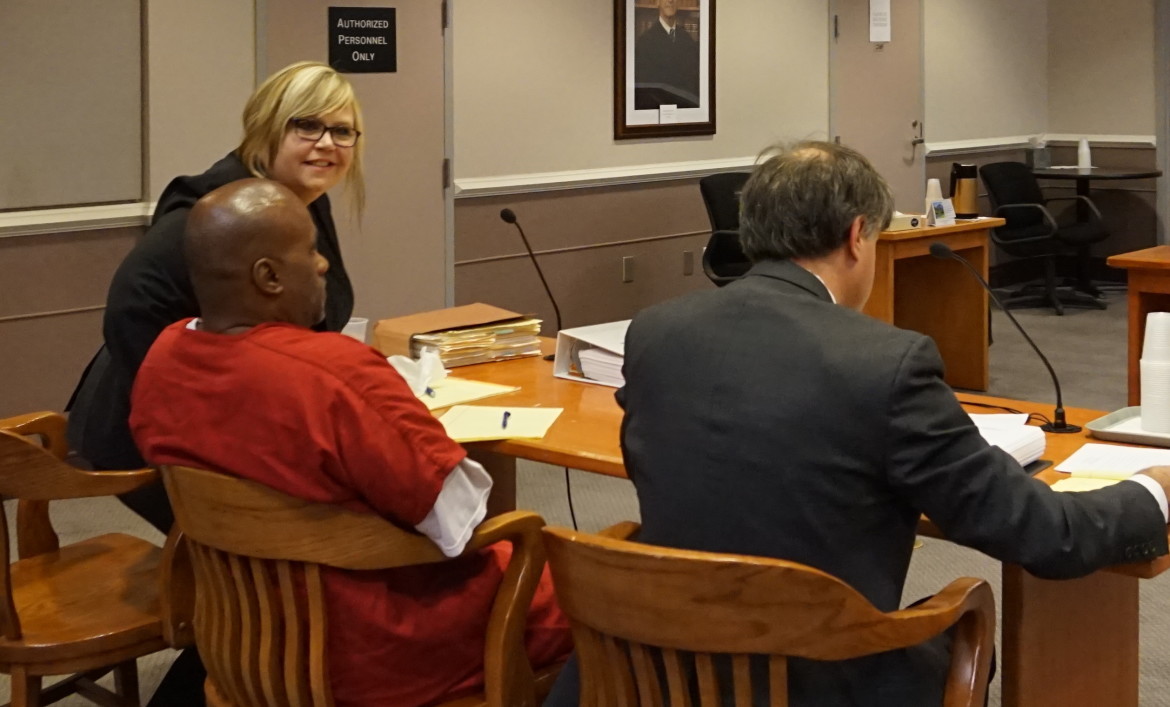NASHUA – Convicted murderer Eduardo Lopez Jr. says a judge was wrong last month to rule that evidence of a police detective’s dishonesty decades ago wouldn’t have affected the 1993 guilty verdict against him.
Lopez filed a notice of appeal to the state Supreme Court on Friday saying Judge Jacalyn Colburn erred last month in granting the state’s motion for summary judgment, which effectively ended his bid for a new trial.
“Lopez claims in this appeal is that the court erred in granting the state’s motion for summary judgment,” wrote Paul Borchardt of the New Hampshire Public Defender’s Office.
Fifteen months ago, Borchardt and co-counsel Pamela Jones filed a motion in Hillsborough County Superior Court South seeking a new trial for Lopez.
They argued prosecutors violated Lopez’s right to a fair trial more than two decades ago by withholding material evidence that was favorable to Lopez.
That evidence involved the state’s failure to disclose prior discipline for lying against then-Nashua Police Detective John Seusing before he testified at Lopez’s 1993 trial.
“Lopez argued that the state’s failure to provide this exculpatory evidence violated (Lopez’s) rights under Brady v. Maryland and State v. Laurie and required he be granted a new trial,” Borchardt wrote.
Both appeals court decisions require material, favorable evidence be disclosed to defendants before trial.
Seusing went on to become chief of the Nashua Police Department and has since retired.
Lopez was 17 when he was arrested for shooting Robert Goyette to death during a robbery in downtown Nashua on March 23, 1991.
That night, he was also arrested for first-degree assault for shooting Roscoe Powers, who survived the rampage, and attacking Nashua Police Officer Thomas McLeod with a stick. Lopez was convicted and sentenced to life in prison without parole.
Borchardt argued in the notice of appeal that Judge Colburn was wrong to conclude that Lopez’s defense theory that he was intoxicated only applied to the charge that he assaulted Officer McLeod.
The court also erred in holding that Seusing was the only police witness who supported Lopez’s defense that he was too drunk to form the requisite intent, the notice stated.
And finally, that Colburn erred in considering Seusing’s testimony and a videotape of Seusing administering Lopez’s breathalyzer together.
“The state and the defense argued completely opposite interpretations of the videotape,” Borchardt wrote. That videotape has since been destroyed or released.
It is a discretionary appeal so the Supreme Court doesn’t have to accept the case.
The defense argued at trial that Lopez was practically unconscious when he was dragged into the police station the night of the murder.
“The state argued that the video showed Lopez was not drunk, but rather that he was ‘cocky and cunning and wouldn’t let any punk cops push him around,’” Borchardt wrote.
“The defense could attack Seusing’s testimony without damaging its case, as Seusing’s interpretation of the videotape evidence countered the defense’s argument,” Borchardt wrote.
Seusing’s discipline came to light two years ago when the Attorney General’s Office investigated a complaint alleging prosecutors failed to disclose it in an unrelated homicide case in 1995.
Attorney General Joseph Foster determined that Seusing’s lie had been disclosed in that case, but had never been disclosed again as constitutionally required whenever he was to testify.
The attorney general notified Lopez and two other convicted murderers of their right to seek a new trial as a result.
Judge Colburn ruled last month that Seusing’s testimony actually supported Lopez’s defense in some respects.
“There were over 20 witnesses at trial, and Detective Seusing’s testimony was inconsequential in establishing Mr. Lopez’s guilt,” Colburn wrote in her December ruling.
In the 36-page ruling, Colburn summarized the testimony of 20 people at trial, including that of Seusing, Lopez and his mother.
“The state was able to prove Mr. Lopez’s guilt on the charges based on the testimony of several witnesses …,” Colburn wrote.
Lopez is serving life without parole. He is awaiting a decision on a U.S. Supreme Court case that will determine whether he will be resentenced because he was a juvenile when he killed Goyette.





